“Listen to kids,” billboard outside House hearing raises up voices of LGBTQ youth who oppose KOSA
The Kids Online Safety Act has not been fixed, and young people want Congress to stop ignoring their concerns
Human rights, LGBTQ, reproductive justice, and racial justice organizations continue to oppose the misguided Kids Online Safety Act (KOSA), which would make young people less safe. Thousands of young people have been speaking out against the bill, which despite several rounds of changes still threatens to cut them off from lifesaving online resources and community.
On May 23, human rights group Fight for the Future deployed a billboard truck outside the House Energy and Commerce Committee mark up of KOSA. The billboard truck displays comments from young people who oppose bills like KOSA that are rooted in censoring content and call on lawmakers to advance privacy and antitrust legislation instead. Additional photos of the mobile billboard are available here.
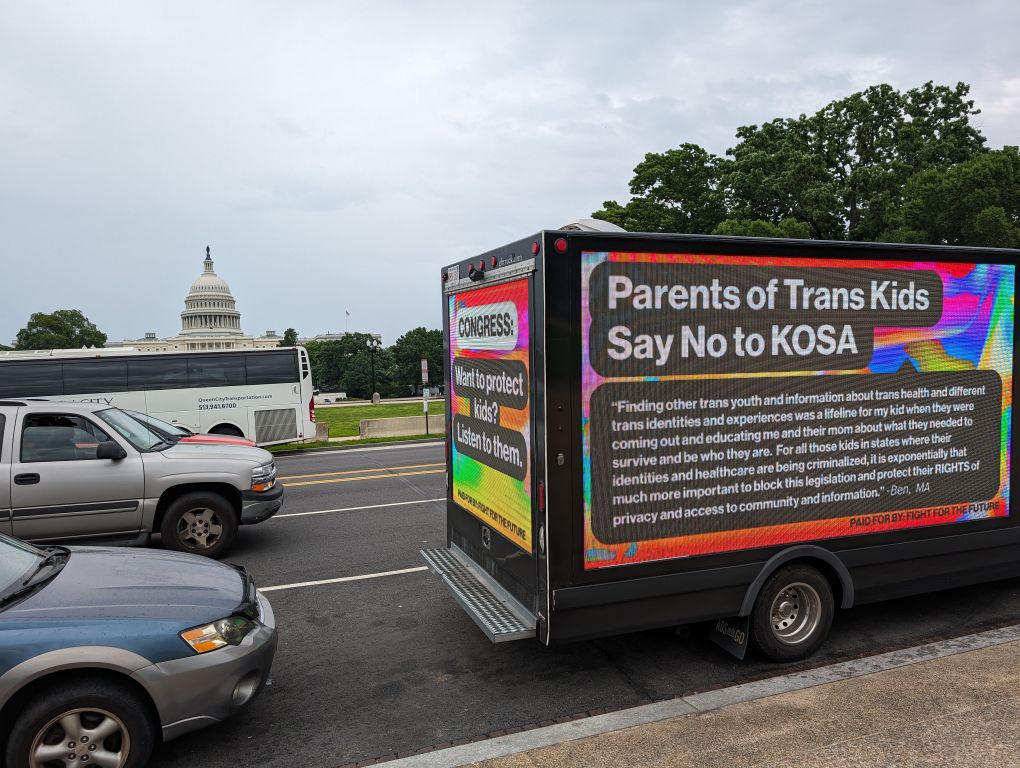
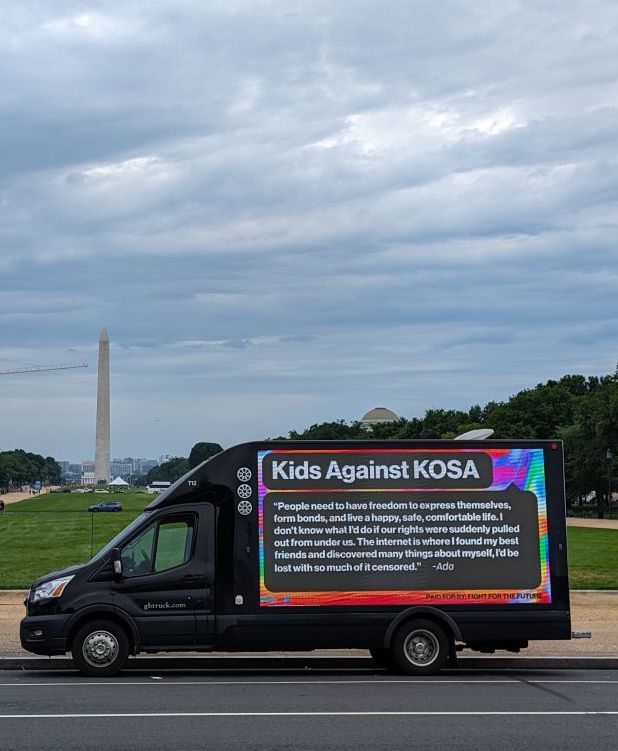
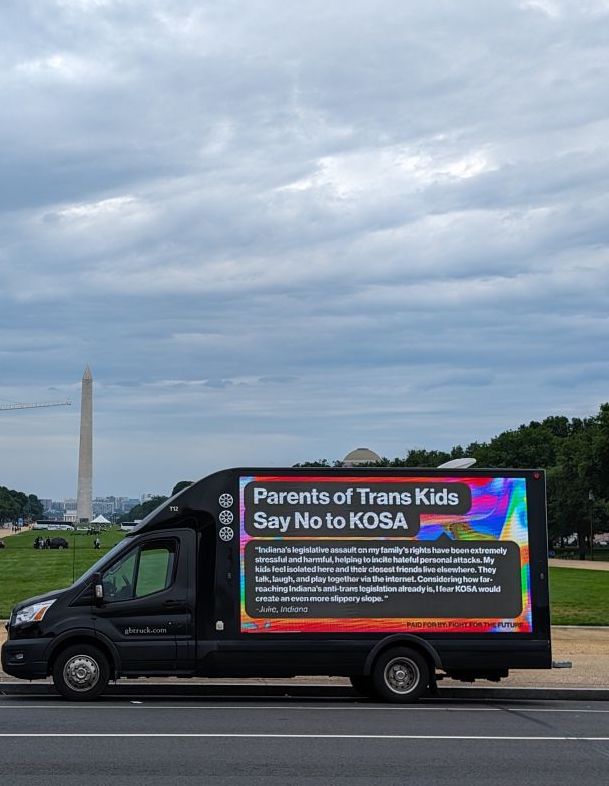
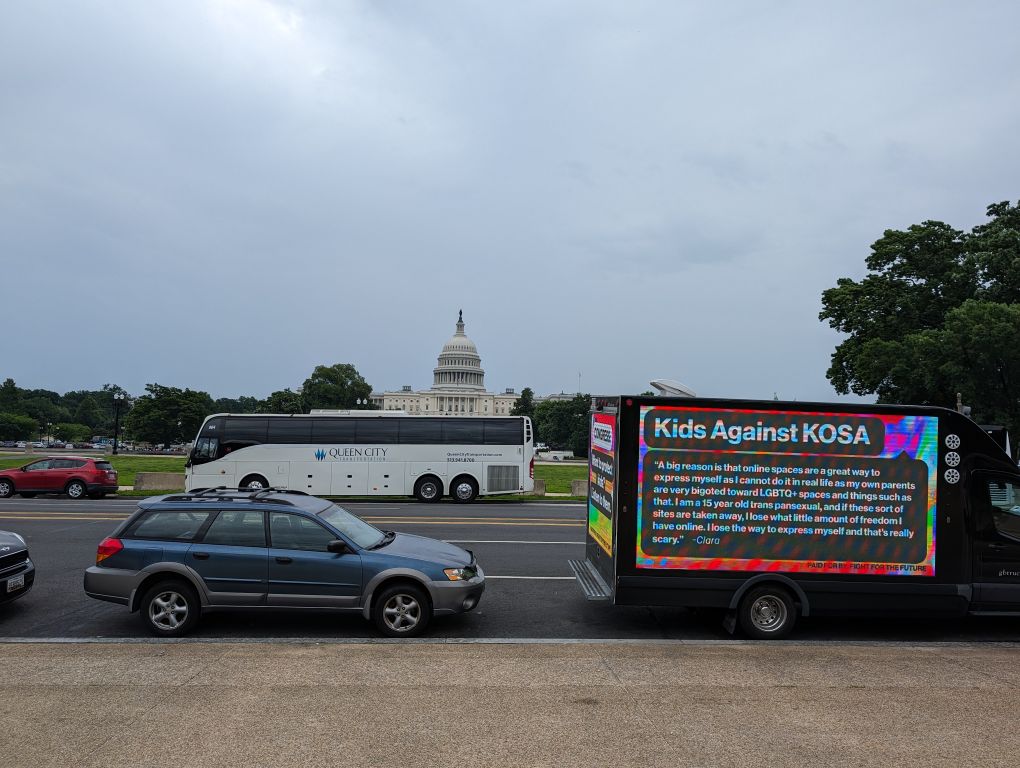
“LGBTQ youth have been leading the charge against KOSA, refusing to back down even as larger NGOs have turned their back on them, but Congress has largely ignored their concerns,” said Evan Greer (she/her), Director of Fight for the Future, “Most queer teenagers can’t afford to come to DC to meet with legislators, but that doesn’t mean their voices shouldn’t be heard. If Congress wants to protect young people, they need to listen to them.”
Fight for the Future and dozens of other civil liberties organizations have explained repeatedly why the changes that have been made to KOSA so far do not address concerns that the bill will harm LGBTQ youth, restrict online access to abortion information, and enable a future FTC to crack down on speech it doesn’t like. The coalition has proposed multiple options for changing KOSA to ensure that it cannot be weaponized for censorship. Senator Ron Wyden has proposed similar changes. So far, the bill’s sponsors have refused to adopt those changes.
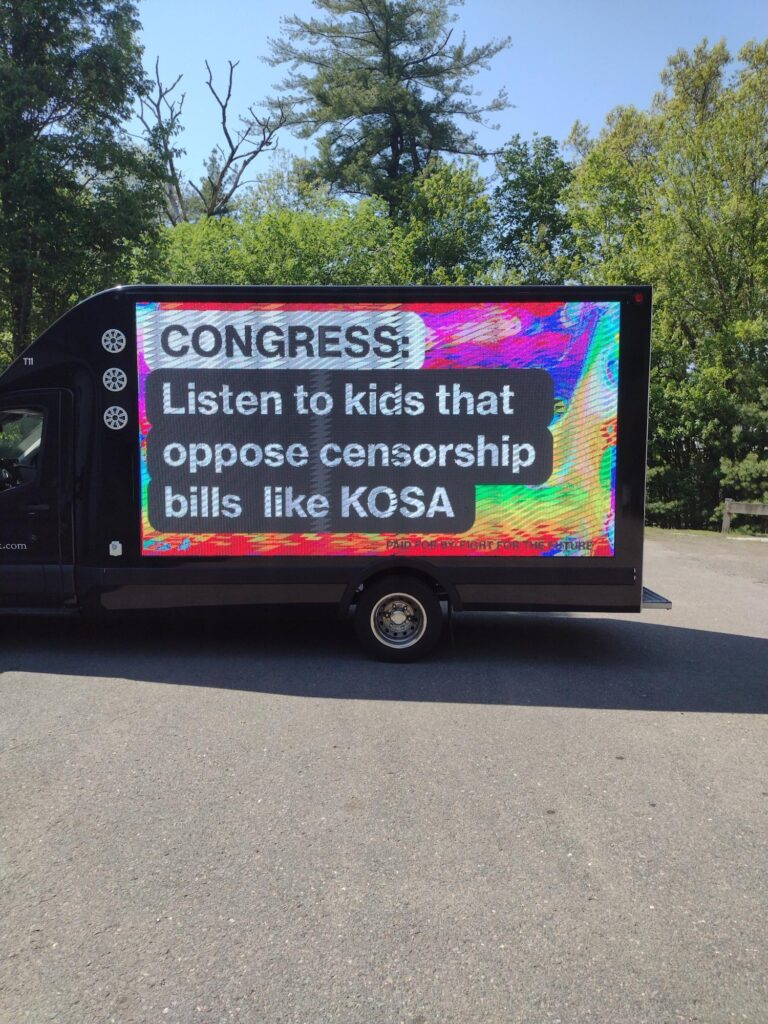
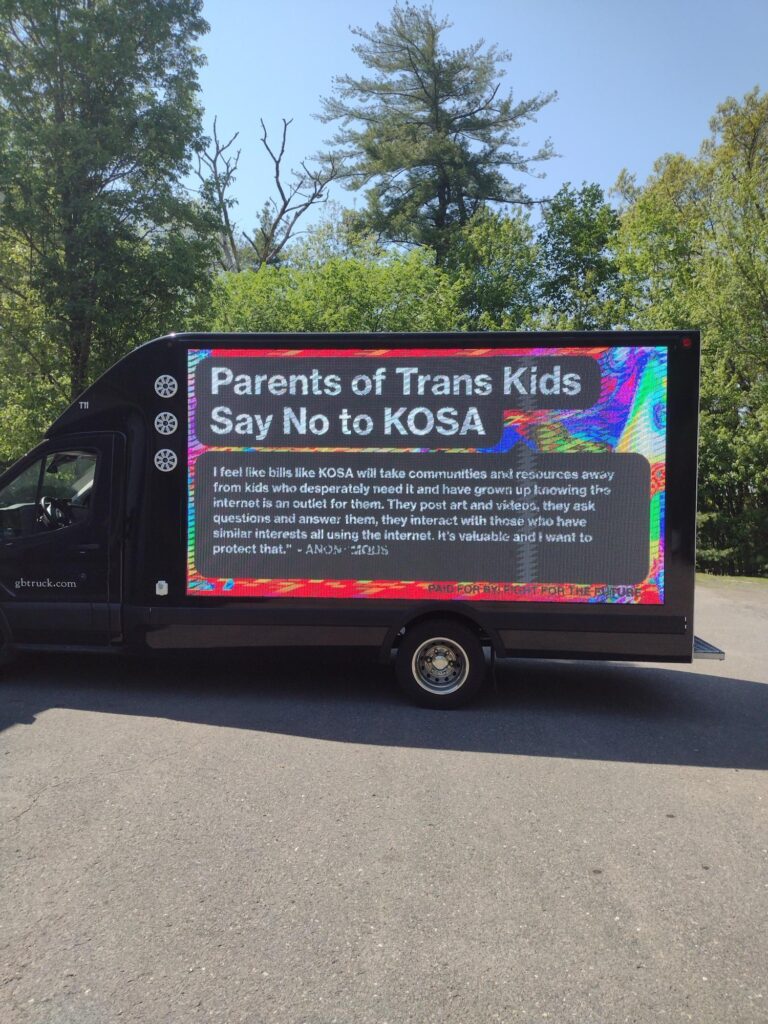
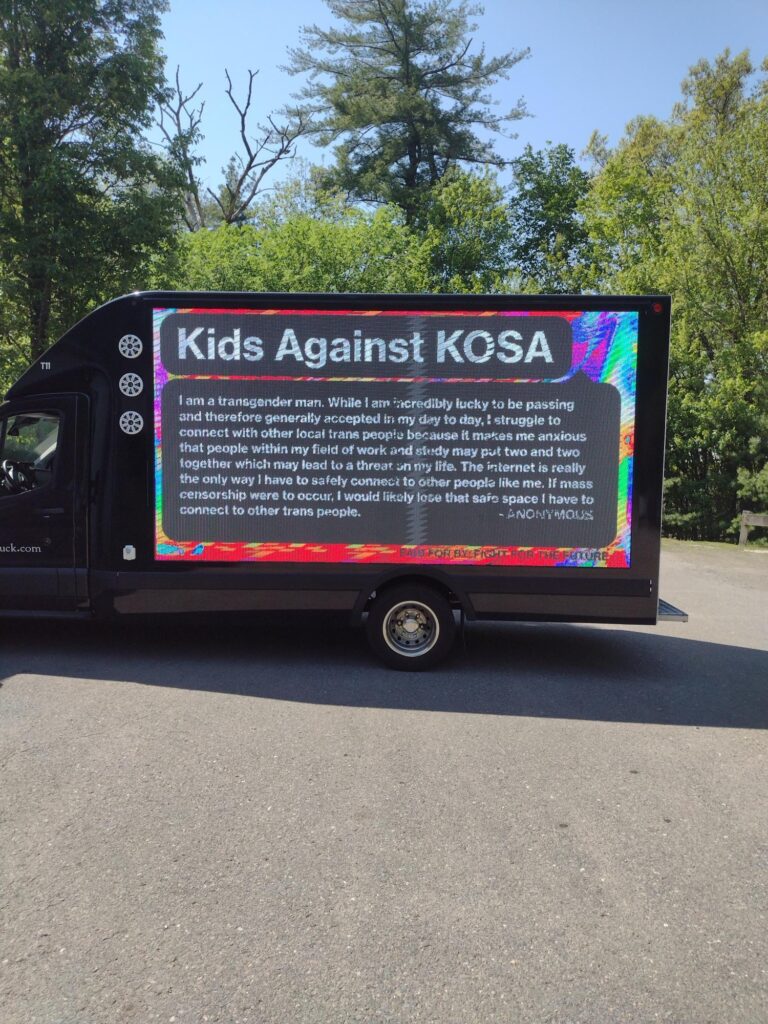
At the same hearing, lawmakers are discussing the American Privacy Rights Act (APRA), which added COPPA 2.0 as an amendment. While APRA should be strengthened, it is positive to see progress toward comprehensive privacy legislation, which would do far more to protect young people online than misguided censorship bills like KOSA. Congress can and should consider alternatives to KOSA that are laser-focused on platforms’ harmful design choices like autoplay, infinite scroll, and surveillance-based algorithmic recommendations.

